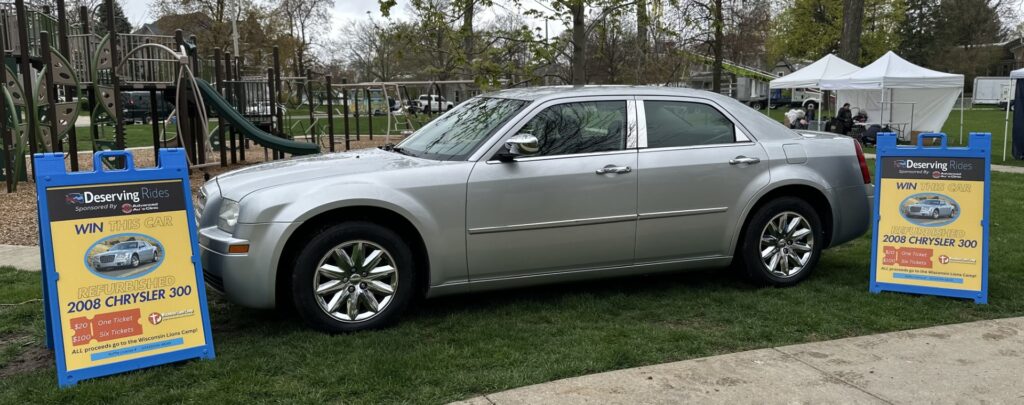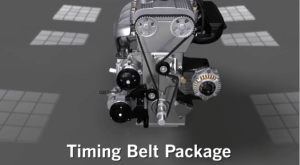Distracted driving causes a lot of motor vehicle accidents. Well, according to one study, twice as many are caused by people not using their turn signals.
Drivers have a lot of excuses for not signaling. About a quarter of drivers in one survey said they were just too lazy to do it. Others think they really don’t have to use a turn signal, even though traffic laws in most areas require it. There are drivers who think they don’t have enough time to do it because they make last-minute decisions; not the kind of driving that experts consider safe.
An insurance company surveyed young drivers and more than two-thirds of them admitted they didn’t regularly use turn signals.
Here are a few reasons drivers should use their turn signals. When you signal a turn or a lane change, it lets drivers around you know what you intend to do. That way the other drivers can anticipate your actions and take whatever measures they must. For example, if there’s a long line of traffic and you’re having a hard time merging, turning on your signal at least gives other drivers a chance to be courteous and let you in. Or if you’re turning left, the driver behind you may choose to change lanes rather than having to wait behind you until traffic clears. It’s always nice to be considerate of the other driver.
Some reported that they don’t use their turn signals because they’re broken. If that’s the case for you, head on over to your NAPA AutoCare Center and have yours checked out. It may be a burned-out bulb, a relay, or other electrical problems such as wiring or a switch. In any case, your turn signals should be in operable condition.
Finally, the number one reason people don’t use their turn signals is that they just forget. Oh, and how about those drivers who do use their turn signal and forget to turn it off?
There are many things you must keep track of when you’re driving. Another driver’s turn signals give you one more piece of information you can use to move through traffic safely. Isn’t it your turn?
Symptoms of a Bad Turn Signal Switch
The turn signal switch performs several functions, both electrical, and mechanical, while indicating a vehicle turn. Electrically, it signals the turn signal flasher to flash either the right or left turn lights, both front and rear. Mechanically, it maintains the turn signal flasher function until the steering wheel is reversed from the turn direction selected. For example, if a left turn signal is selected, the turn signal switch will maintain a flashing left turn signal until the steering wheel is turned a certain amount counterclockwise (for a left turn), then turned clockwise back to a straight-ahead, or centered position. The same is true for a right turn. The flashing turn signal is then “cancelled”.
One of the most frequently used electrical components on a vehicle, a failed, or failing, turn signal switch may be indicated by the following symptoms:
- Turn signal indicator continues to blink when the steering wheel returns to the center. This symptom likely reflects a failure of the mechanical portion of the turn signal switch. Unfortunately, we’ve all seen drivers cruising straight down the road, with their turn signal still blinking. This failure mode is the likely original cause.
- Turn signal lights don’t continue flashing unless turn signal lever is held down. Similarly, this symptom also reflects a failure of the mechanical portion of the switch. Correction of this problem is best left to a professional mechanic at AAC who can provide you with a diagnosis, and then perform the turn signal switch replacement.
- Left or right turn signals or the Hazard Warning Light not working properly. The hazard warning flasher and turn signal flasher functions are built into a single, integrated electrical unit, potentially affecting both turn signal and hazard flasher functions at the same time. AAC can confirm the hazard flasher failure, and replace the flasher unit if this is the failing component.
Turn Signal Bulb Replacement Service
What is the Turn Signal Bulb
The turn signal bulbs are located inside the light assemblies on all four corners of the car. The turn signal switch takes the drivers input and sends power to the corresponding bulb to inform other drivers that you intend to change lanes or make a turn.
Keep in mind:
If all four turn signal bulbs stop flashing or lighting up, it is likely that the turn signal flasher has gone bad, not the bulbs.
The mechanic at AAC will check all the lights in your car every time you get a major service at our auto shop.
What common symptoms indicate you may need to replace the Turn Signal Bulb?
Turn signal lights are not flashing or lighting up.
How important is this service?
Turn signals exist to alert your surroundings that your vehicle will be making a turn. When you press the lever on your steering column, front and rear turn signal bulbs flash, to let drivers around you know of your intention to make a turn. When a turn signal bulb dies, that turn signal will no longer light up. This means that your vehicle will not alert drivers in front of you (if it’s the front turn signal bulb) or behind you (if it’s the rear turn signal bulb) that you plan to turn, which makes your vehicle a safety hazard.
Not having a functioning turn signal is also illegal, and carries a hefty fix-it ticket price.








